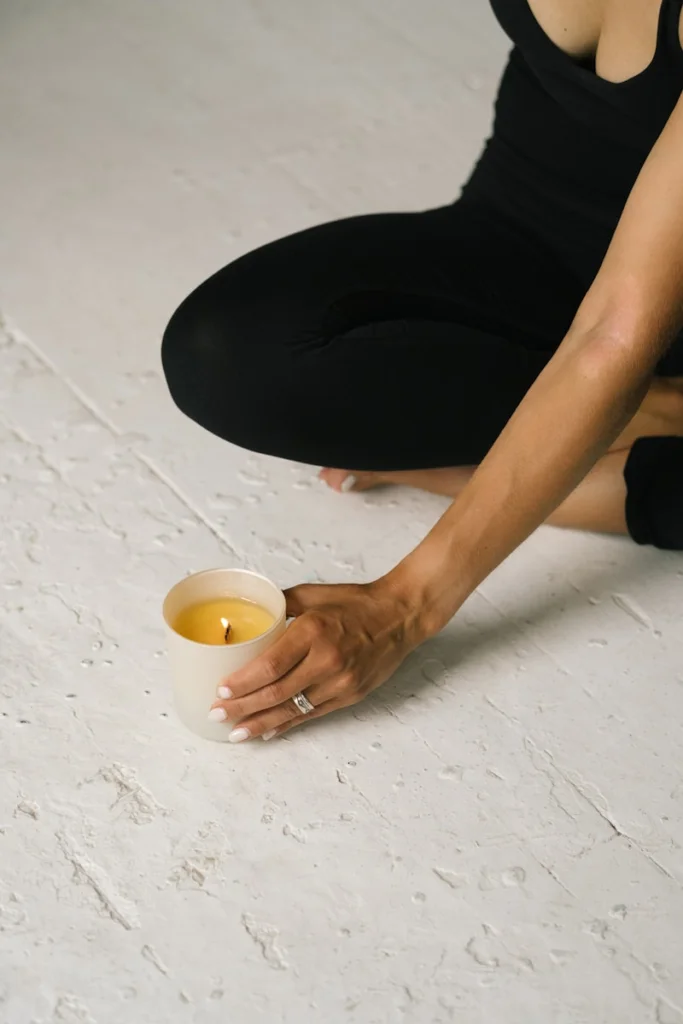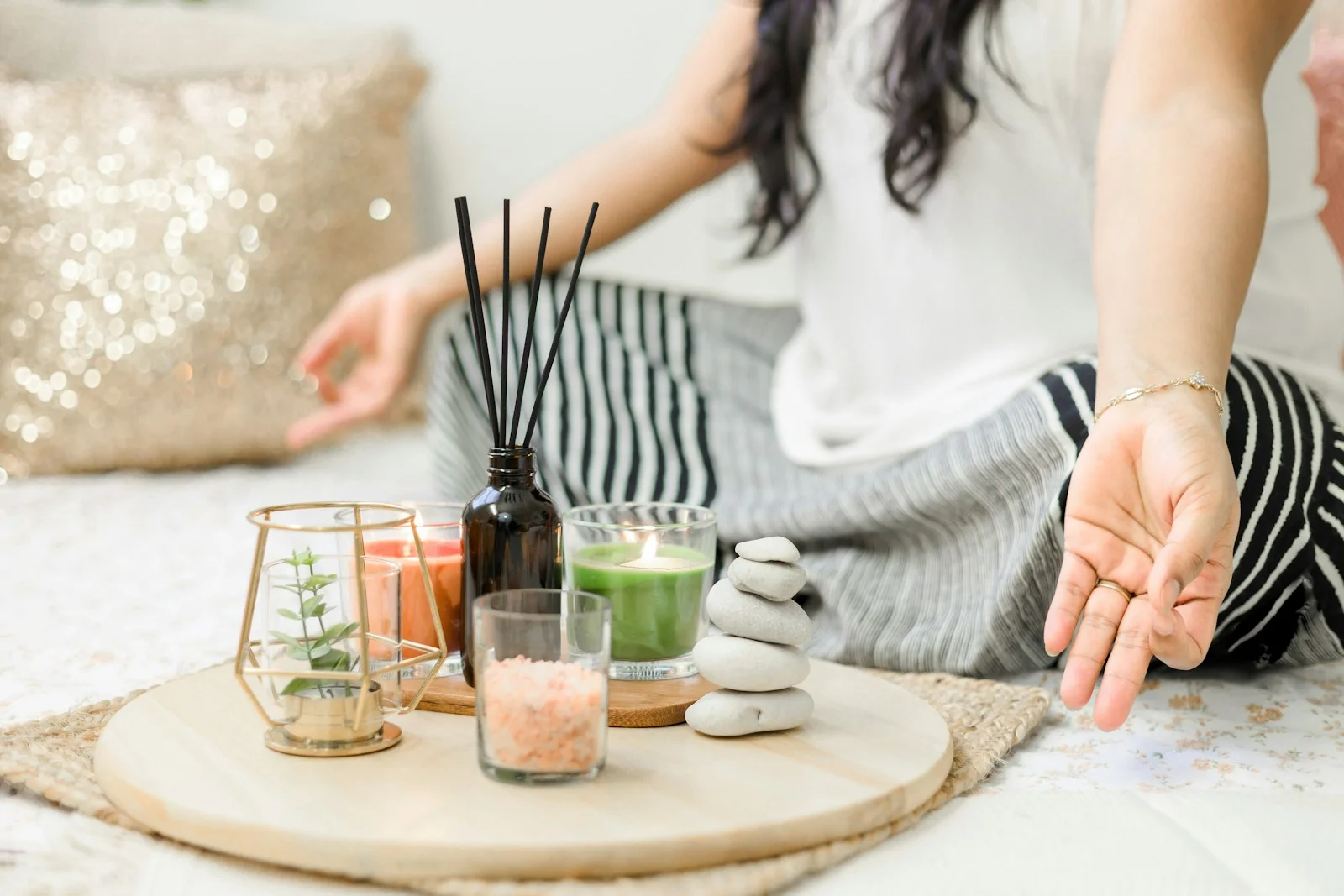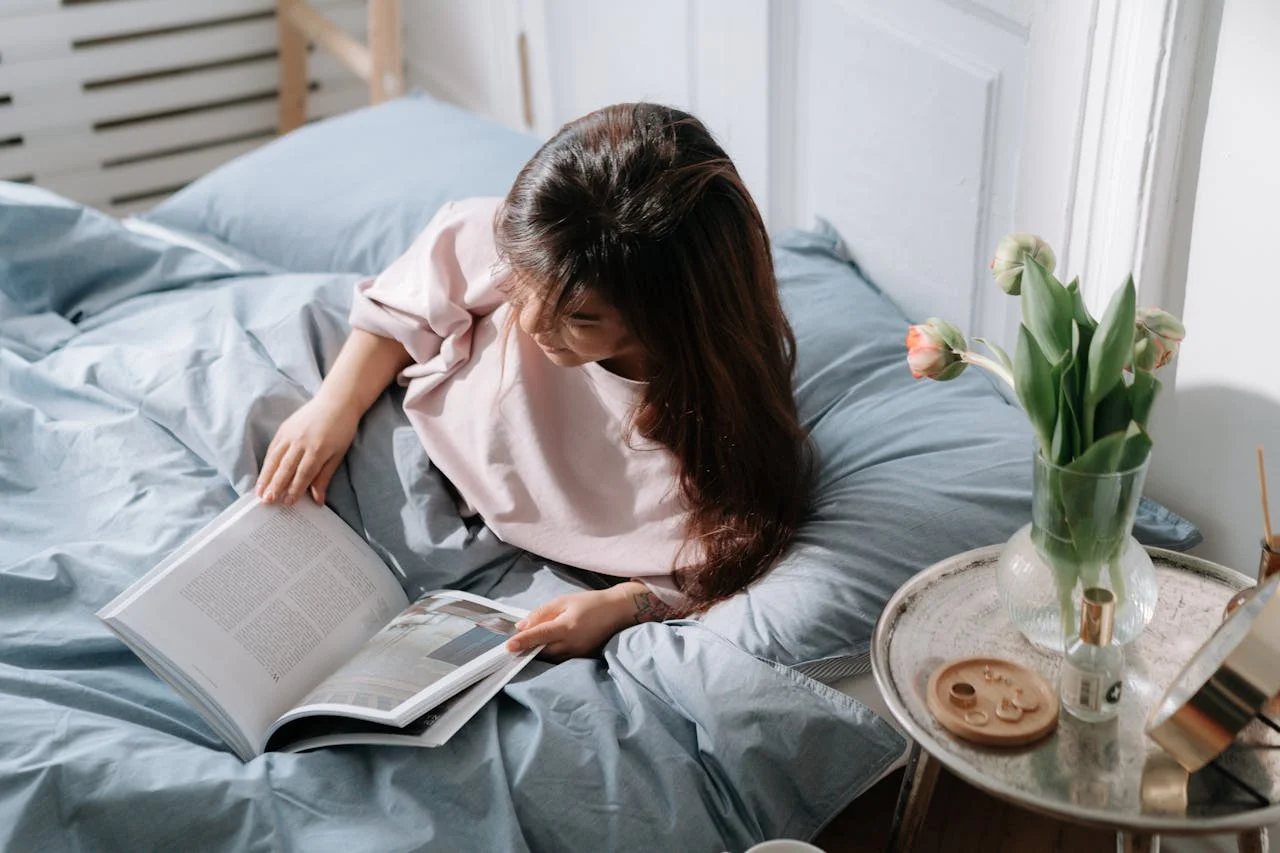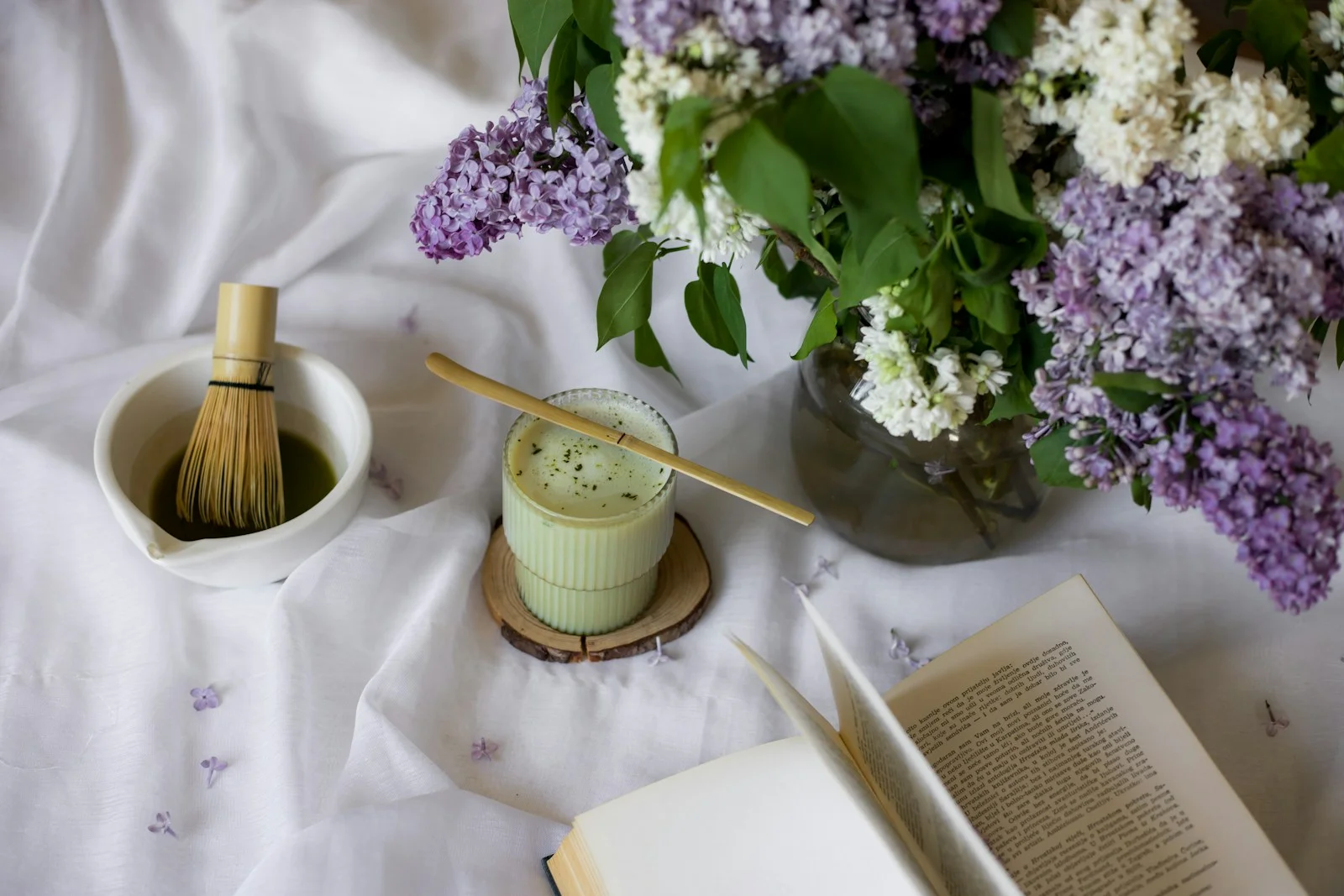
You’re lying in bed at 11 PM, mind racing through tomorrow’s meetings while scrolling your phone—again. I can tell you this isn’t just poor sleep hygiene, it’s stealing your peace and energy every single day. After years of restless nights and groggy mornings, I’ve discovered that true unwinding requires intentional rituals that signal your nervous system it’s safe to rest. These aren’t just feel-good activities—they’re proven strategies that’ll transform your evenings from chaotic to restorative, starting tonight.
Create a Technology-Free Sacred Hour Before Bed
The blue glow from your phone screen isn’t just keeping you awake – it’s hijacking your brain’s natural shutdown process. I can tell you from years of working with high-performers, this sacred hour before bed becomes your secret weapon for true power recovery.
Set a hard boundary one hour before sleep – all screens off, period. I’ve never seen anyone regret this decision. Your mind needs time to shift from high-stakes decision-making to restorative rest mode.
Fill this hour with intentional activities: read physical books, practice gentle stretching, journal your wins, or simply sit in quiet reflection. You’re not being lazy – you’re strategically preparing your brain for deep, regenerative sleep that’ll fuel tomorrow’s victories. This screen-free time allows your body to naturally increase melatonin production, which is essential for falling asleep and staying asleep throughout the night.
Practice Gentle Candlelit Yoga or Stretching

During this sacred technology-free hour, your body craves gentle movement that signals rest, not stimulation. I can tell you that candlelit yoga transforms your evening routine into something powerful, something that actually works. The flickering flames create shadows that dance across your walls, naturally slowing your breathing, dropping your shoulders away from your ears.
Focus on restorative poses like child’s pose, gentle spinal twists, and legs-up-the-wall. I’ve never seen anything calm an overactive mind faster than holding these positions for three to five minutes each. The candlelight forces you to move slowly, deliberately, honoring your body’s need to shift from day to night. Consider adding yoga blocks to enhance alignment and make poses more accessible during your evening practice. This isn’t about flexibility or performance—it’s about reclaiming your evening, your peace, your power to truly unwind.
Prepare a Mindful Herbal Tea Ritual
Why rush through making tea when this simple act can become your most powerful evening anchor? I can tell you that creating a deliberate tea ritual transforms scattered energy into focused calm within minutes.
Choose chamomile for deep relaxation, passionflower for anxiety relief, or lemon balm for gentle stress reduction. Heat your water slowly, watching steam rise from the kettle. Select your favorite mug deliberately, feeling its weight in your hands. Pour the water with intention, letting the aroma fill your senses.
I’ve never seen anything command attention like the simple act of steeping tea mindfully. Set a timer for five minutes, breathe deeply, and resist checking your phone. This isn’t just making tea—you’re establishing boundaries between your hectic day and restorative evening.
Chamomile tea’s apigenin antioxidant specifically targets brain receptors to naturally reduce anxiety and promote the deeper sleep quality your body craves after long days.
Write Three Pages of Stream-of-Consciousness Journaling
Once you pick up that pen and let your thoughts spill onto paper without any filter, you’ll discover what your mind has been carrying all day.
When thoughts flow unfiltered onto paper, you finally see what’s been weighing on your mind all along.
Three pages might seem like a lot, but I can tell you this practice clears mental clutter like nothing else. Don’t worry about grammar, spelling, or making sense. Write whatever comes up—work frustrations, random memories, tomorrow’s concerns.
Keep your hand moving for twenty minutes straight. When you hit a blank spot, write “I don’t know what to write” until something surfaces. I’ve never seen anyone regret this practice.
You’ll sleep deeper because your brain isn’t processing unfinished thoughts. This isn’t pretty journaling; it’s mental housekeeping that powerful people understand creates space for clear decision-making.
This stream-of-consciousness approach naturally helps you identify limiting beliefs that may have been quietly influencing your thoughts and emotions throughout the day.
Take a Warm Bath With Essential Oils and Epsom Salts

Twenty minutes in hot water transforms your nervous system from fight-or-flight mode into deep relaxation, and I can tell you this isn’t just feel-good advice—it’s biochemistry working in your favor. Your core body temperature rises, then drops when you exit, triggering your brain’s sleep signals.
I’ve never seen anything work faster than adding two cups of Epsom salts to absorb through your skin, delivering magnesium directly to tired muscles. Add five drops of lavender or chamomile essential oil—these aren’t luxury additions, they’re chemical compounds that reduce cortisol production.
Keep water temperature between 100-104°F. Hotter disrupts sleep quality, cooler won’t trigger the temperature shift you need. This isn’t indulgence, it’s strategic recovery that puts you back in control.
Light a few natural soy candles around your bathroom to create the soft, warm ambiance that signals to your brain it’s time to transition from day to evening.
Engage in Slow, Meditative Reading
The right book at bedtime doesn’t just occupy your mind—it actively rewrites your brain’s evening programming, and I can tell you from years of watching clients struggle with racing thoughts that this works when nothing else will. You’re not scrolling through social media or consuming information that demands analysis. Instead, you’re choosing books that slow your mental pace—poetry collections, nature writing, or gentle fiction that doesn’t spike your adrenaline.
I’ve never seen someone maintain evening anxiety while reading Mary Oliver or Annie Dillard. Your breathing naturally deepens, your shoulders drop, and your mind shifts from problem-solving mode to absorbing beautiful language. Read for twenty minutes, letting each sentence wash over you without rushing to the next chapter. Consider pairing your reading ritual with cozy fall vibes by downloading free autumn desktop wallpaper that creates a warm, seasonal atmosphere on your computer screen before you settle in with your book.
Practice Deep Breathing Exercises by an Open Window
After your mind settles into that gentle rhythm from reading, you’ll find your body craves the next level of release, and that’s where fresh air becomes your most powerful ally. I can tell you, there’s something transformative about combining intentional breathing with cool evening air flowing across your skin.
Position yourself near an open window, feel that natural breeze, and begin with a simple 4-7-8 pattern: inhale for four counts, hold for seven, exhale for eight. The fresh oxygen floods your system while the outdoor sounds ground you in the present moment. I’ve never seen anyone maintain their daytime tension after ten minutes of this practice. Your nervous system shifts into recovery mode, preparing your body for the deep rest it deserves.
These intentional pauses throughout your evening create the perfect transition from your busy day into a state of true relaxation.
Organize Your Space With Intentional Tidying
Why does clutter seem to multiply the moment you’re trying to relax? I can tell you it’s because your brain can’t truly settle when surrounded by visual chaos.
Your brain can’t truly settle when surrounded by visual chaos, which is why clutter feels overwhelming when you’re trying to relax.
Here’s what I’ve learned: intentional tidying isn’t about perfection, it’s about creating peace.
Start with surfaces you’ll see during your evening routine. Clear your nightstand, fold that chair pile, put dishes in the dishwasher. I’ve never seen anyone feel stressed after making their bed or organizing their coffee table. The key is choosing specific areas that directly impact your relaxation zones.
This isn’t about deep cleaning your entire house. You’re strategically removing distractions so your mind can actually unwind. When your environment feels controlled, you feel powerful and ready to truly rest.
Consider investing in stylish desk organizers that reflect your personality while keeping your workspace surfaces neat and clutter-free.
Create Art or Craft Without Pressure for Perfection
How often do you avoid creative activities because you’re worried the result won’t look Instagram-worthy? I can tell you that perfectionism kills the therapeutic power of creativity faster than anything else. When you create without judgment, your nervous system actually shifts into a calmer state.
Set up simple supplies that invite exploration:
- Watercolors bleeding unpredictably across wet paper
- Clay responding to gentle pressure from your hands
- Colored pencils layering unexpected color combinations
- Journal pages filled with messy, honest sketches
I’ve never seen anyone regret time spent creating something imperfect. The goal isn’t producing museum-quality art—it’s giving your mind permission to wander, problem-solve, and process your day through your hands. You’ll discover that flawed creations often carry more emotional weight than polished ones. The simple act of painting reduces cortisol levels by 75%, proving that your evening art session delivers measurable stress relief beyond just the joy of creating.
Listen to Calming Music While Doing Simple Tasks
Your hands can find their own rhythm when you pair gentle tasks with music that matches your body’s natural slowdown. I can tell you that folding laundry transforms from drudgery into meditation when you’ve got ambient piano flowing through your space. Your brain shifts gears, moving from the day’s sharp edges into something softer, more manageable.
Choose tasks that don’t require heavy thinking – washing dishes, organizing your desk, preparing tomorrow’s clothes. I’ve never seen anyone stay wound up while slowly arranging books to classical guitar. The key is matching tempo to task. Upbeat music keeps you wired, but gentle instrumentals, nature sounds, or soft acoustic pieces let your nervous system actually release. Your evening routine becomes a bridge between day stress and night peace.
While your music plays, simple movements like rolling shoulders or gentle neck stretches can release the physical tension that accumulated throughout your day.
Practice Gratitude Meditation or Reflection
When you turn your attention to what went right instead of what went wrong, your mind naturally shifts from tension to peace. I can tell you that gratitude meditation transforms your evening from a recap of problems into a celebration of progress.
Start with five minutes of focused reflection. I’ve never seen anyone struggle with this once they commit to the practice. Your brain literally rewires itself when you consistently acknowledge positive moments.
Picture yourself settling into this routine:
- Sitting quietly with a journal, writing three specific things that brought you joy
- Feeling warmth spread through your chest as you recall a colleague’s kind gesture
- Noticing how your shoulders drop and breathing deepens with each grateful thought
- Ending with genuine appreciation for your own resilience
This practice builds unshakeable inner strength.
Prepare Tomorrow’s Clothes and Essentials Mindfully
Where does tomorrow’s stress really begin? It starts the moment you’re scrambling through your closet, hunting for clean underwear while you’re already running late. I can tell you from years of rushed mornings that this chaos sets a frantic tone for your entire day.
Lay out tomorrow’s complete outfit, including underwear, socks, jewelry, everything. Check your bag, charge your devices, prep your coffee maker. I’ve never seen anyone regret being prepared, but I’ve watched countless people spiral from morning chaos.
This isn’t about being uptight – it’s about claiming control. When you mindfully prepare tonight, you’re gifting yourself a calm, confident start tomorrow. That’s real power.
End the Day With Progressive Muscle Relaxation
After spending countless nights watching clients toss and turn, I can tell you that most people don’t know how to properly shut down their bodies for sleep. Progressive muscle relaxation gives you complete control over your physical state, and I’ve never seen a technique work faster for busy leaders who struggle to decompress.
Start at your toes, tense each muscle group for five seconds, then release completely. Work systematically upward through your body:
- Feel your feet melting into warm sand as tension dissolves
- Notice your shoulders dropping like heavy stones falling away
- Sense your jaw unclenching as stress evaporates into cool night air
- Experience your mind clearing like fog lifting from still water
This isn’t meditation—it’s strategic body management that’ll transform your sleep quality within days.
Conclusion
You’ve got thirteen powerful tools now to transform your evenings from chaotic wind-down attempts into genuine restoration. I can tell you that picking just two or three of these routines will make a massive difference in your sleep quality and morning energy. You don’t need perfection, you need consistency. Start tonight with one simple practice, then build slowly. Your future self will thank you for reclaiming these precious evening hours.





Leave a Reply